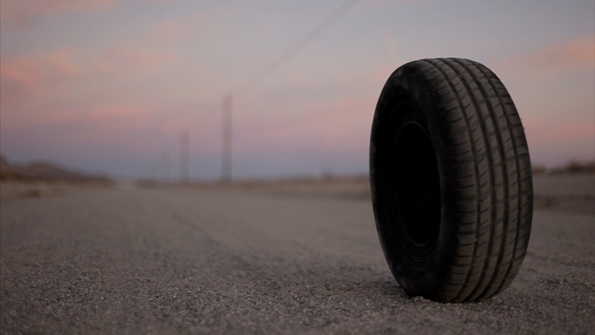Effects galore – from futuristic sets with technological imaginative leaps to the guts and gore of genre films – ICON TLV has it all. The SCI-FI/Fantasy festival has an eclectic and creatively curated film program that will not only provide hours of fun for genre enthusiasts, but features films that can hold their own beyond the genre. In other words: they have some good movies here.
The program includes both international and Israeli films; Midnight East took a preview peek at some. Full and proper disclosure compels me to divulge that this writer is just not a fan of grindhouse/horror. For all you fans it’s there in the program, you know what is, you know where to find it, indulge & enjoy.
Midnight East prefers to take a different journey through the festival films, in search of something slightly more esoteric, that cumulative festival effect of seeing films in a juxtaposition that might not otherwise occur, making connections between films that might otherwise appear to have absolutely nothing in common.

Didi Lubetzky’s Poisoned (Hebrew title: Mur’alim) is a zombie comedy about IDF soldiers. Lubetzky’s first film is great fun, with plenty of blood and gore, and an irreverent look at Israeli culture – I thoroughly enjoyed all 43 minutes of the film (in Hebrew with English subtitles). A deep hatred of spoilers prevents me from revealing too much about the film, but there is great cult potential here. This writer would gladly see it again and again. Some cultural decoding for non-Israelis: muralim is the military slang for those who are, shall we say, over-zealous military enthusiasts. I would also like to suggest that there is something inherently funny about Zombies. Even if you are sitting there, clutching your seat in fear, there is also an urge to laugh that mingles with the fear. Zombies are and are not human. We recognize their features, they look familiar, yet their behavior is incongruous with the person we remember.
Another festival film that touches on the mind/body relationship in a different way, is Transfer (2010), directed by Damir Lukacevic. Set at some point in the non-specific future when science and technology can provide the key to eternal youth and vigor, for some. Hermann and Anna are an elderly couple whose love still burns strong, but their bodies are beginning to fail. For a million Euros they can purchase the bodies of Apolain and Sarah and through a technique called ‘personality transfer’ can have the use of these fine young bodies for 20 hours a day, while Apolain and Sarah regain the use of their bodies for 4 hours, when Hermann and Anna are asleep. Can personality be defined, captured, transferred to another body? Will it still remain the same? If my ‘personality’ is transferred to another body, will I still be me? And what about the ‘personality’ of the body I inhabit – is it also still there, albeit suppressed, will the two personalities somehow inevitably interact? The film raises ethical and philosophical questions, yet at the same time is a sensitive and moving love story, with an element of suspense.

What makes an individual? If two identical individuals exist in parallel realities, what would happen if these two realities somehow intersect? What are the implications of this encounter, how would the knowledge affect the individuals and the course of their lives? Another Earth (2011), written by Brit Marling and Mike Cahill, and directed by Mike Cahill begins with the discovery of a duplicate planet in the solar system, the sight of the planet looming in the night sky changes the course of MIT-bound Rhoda Williams’ life. Driving at night, she turns to look at the planet, and the resulting accident destroys an entire family.
After the initial crash, this sensitive, introspective film starts off somewhat slowly, but it is well worth hanging in there. The film raises some tantalizing possibilities and questions: What if you could meet yourself, what if you could see yourself from an external perspective, what would you say to yourself? The main character of this miniscule-budget DIY film does not say much, there are many long silences throughout the film. Long enough to feel uncomfortable – and that is one of the film’s strengths. Eloquent visuals – ‘second Earth’ looming in the sky, dust motes illuminated in sunlight, and disembodied voices – the ongoing news updates and musings of the media narrators on television and radio, work with Rhoda’s unspoken interior monologue to invite the viewer to enter imaginatively into the consciousness of the other, to feel what she is feeling.

What makes an individual? What does it mean to be human? Are there limits, ethical and otherwise, to what technology can do? What the heck does it all mean? Rubber (2010), a French horror comedy film by Quentin Dupieux travels along that road, doing a terrific job of imbuing a tire with personality in this improbable and enormously appealing film. In this amusing meta-musing on meaning, a tire comes to life and embarks on a rolling rampage of death and destruction. Yes, really. Referencing and mocking the genre, not only of horror but film itself, with an effective score and cool effects.
Check out these and other films, the full program is available on the ICON TLV site. If you are interested in further explorations of a more interactive kind, take a look at ICON TLV’s two conferences:
Singularity Unconference, October 17, 2011, 9:30 – 17:30
Hemda, 7 Hapardes Street, Tel Aviv, Reflections on the hypothetical future merging of biological and non-biological systems. The conference is free, but advance registration is required. To register online click here.
The Future of Humanity – Now, October 24, 2011, 9:30 – 20:00
An international academic conference taking place at the Van Leer Institute,
43 Jabotinsky Street, Jerusalem, the public is invited and entrance is free






I loved ‘Another Earth’ on account of the beautiful, poetic moments like the guy playing a saw. You can hear music from the musical saw scene on the composer’s website: http://www.scottmunsonmusic.com/news/music-in-film-another-earth-soundtrack/
Comments are closed.